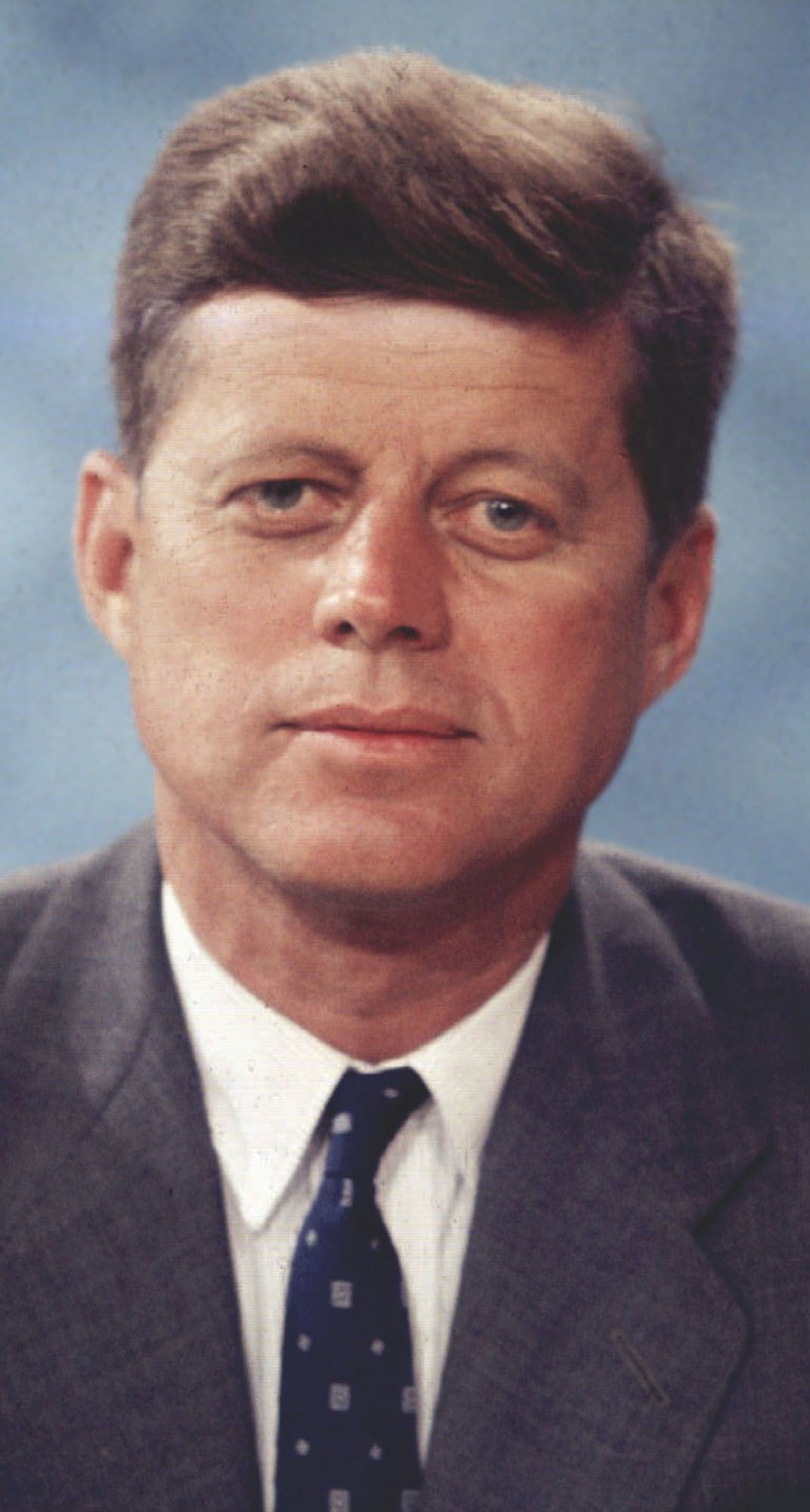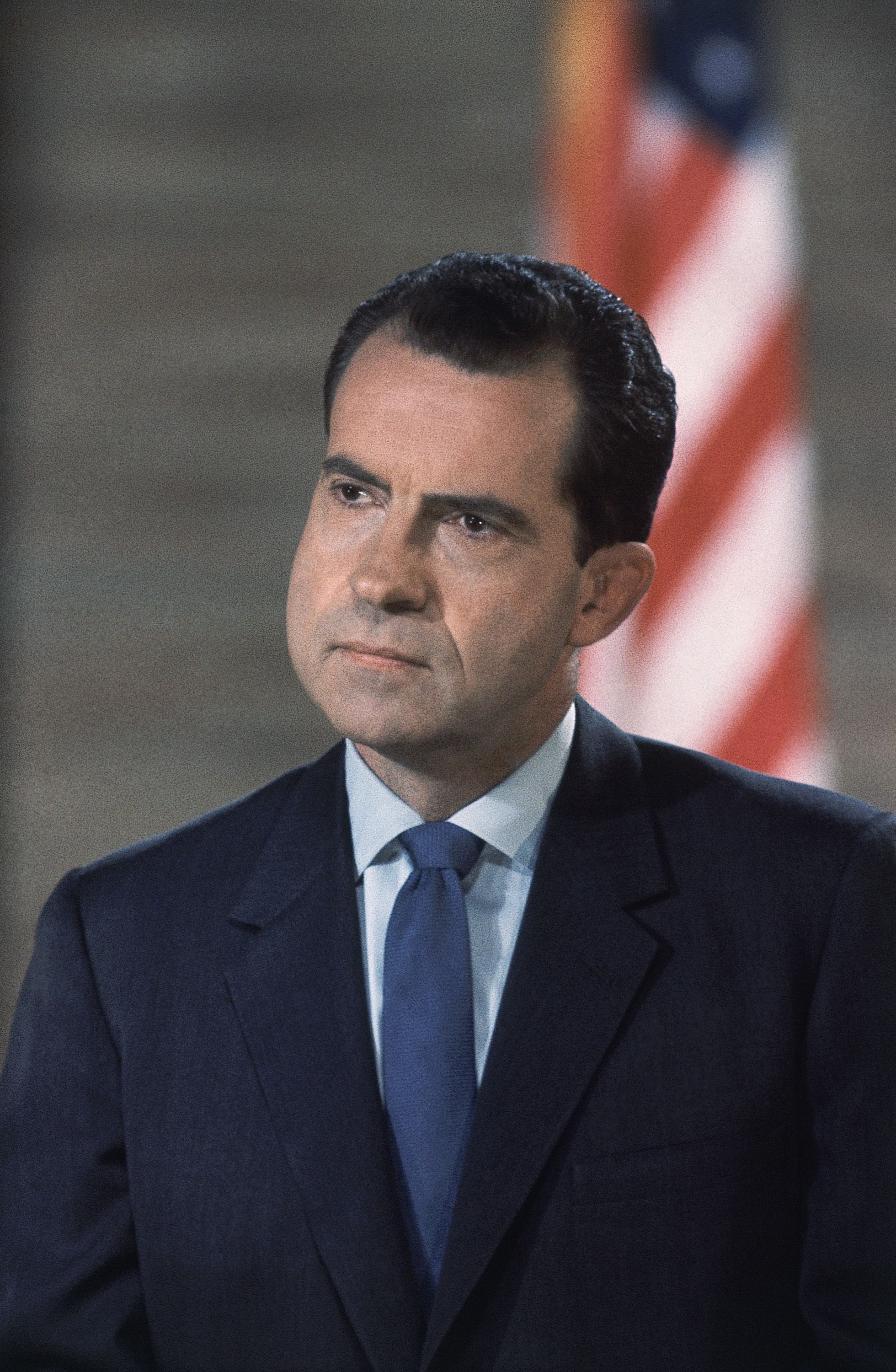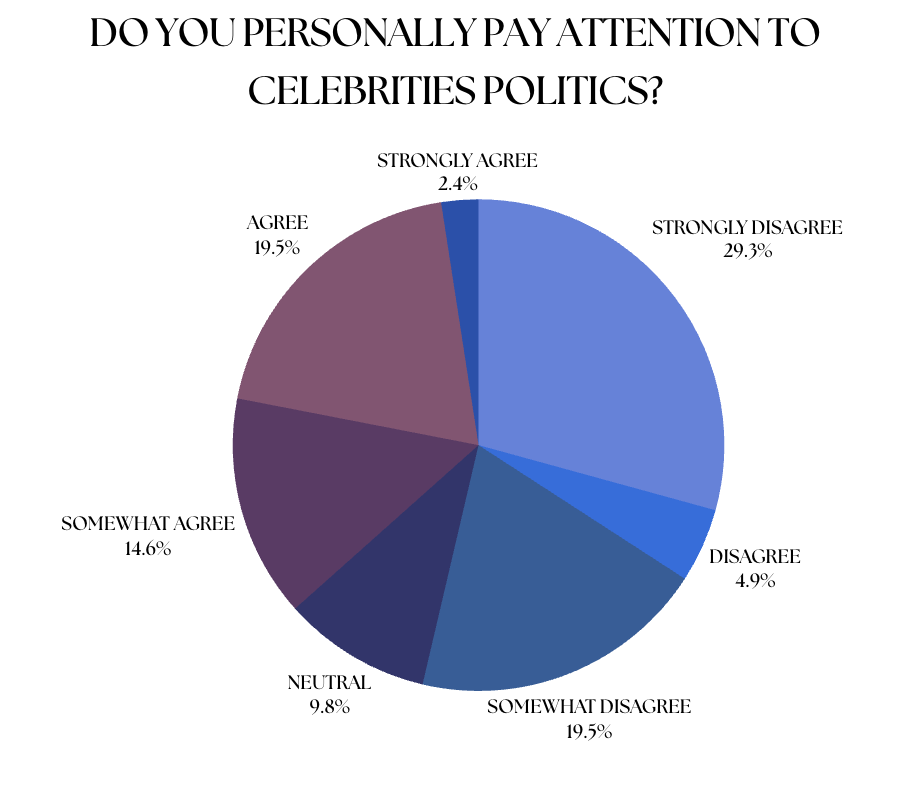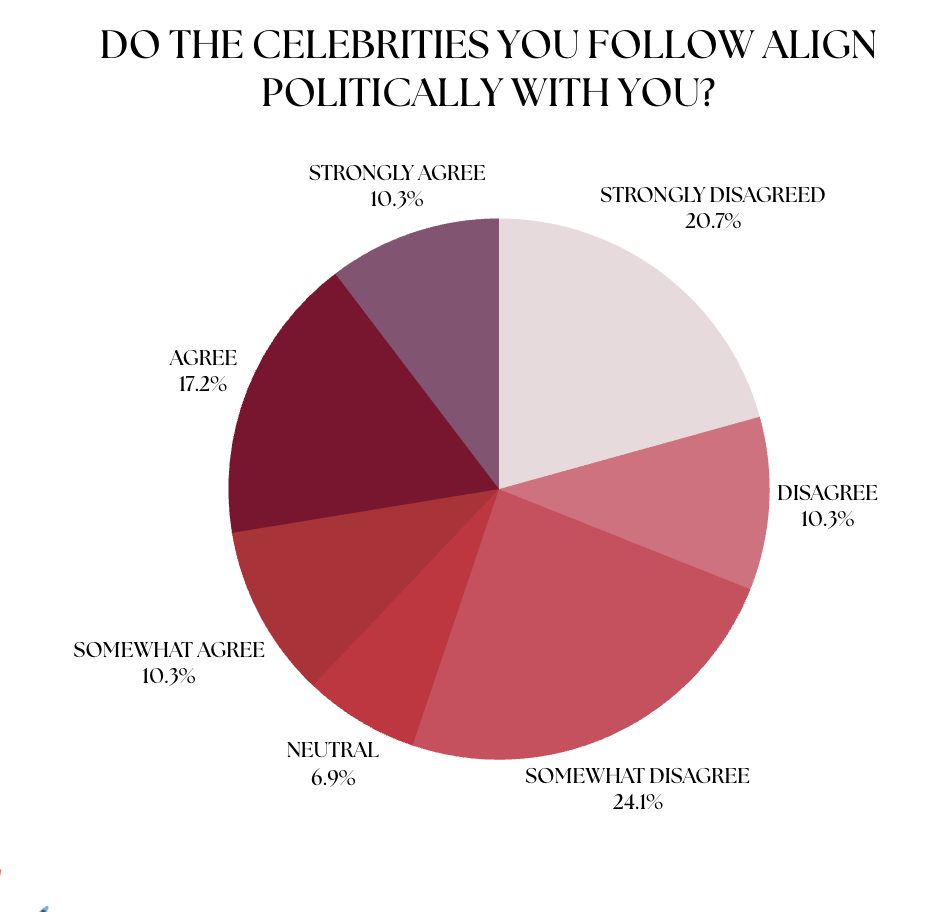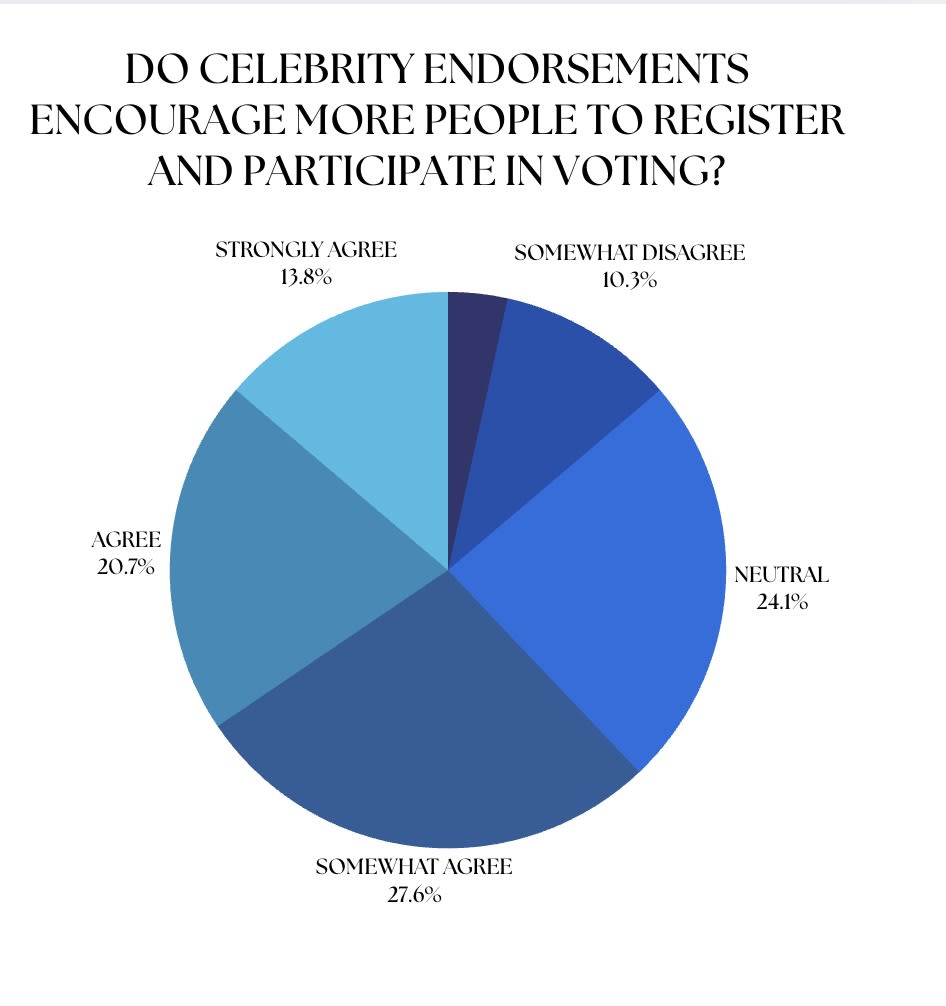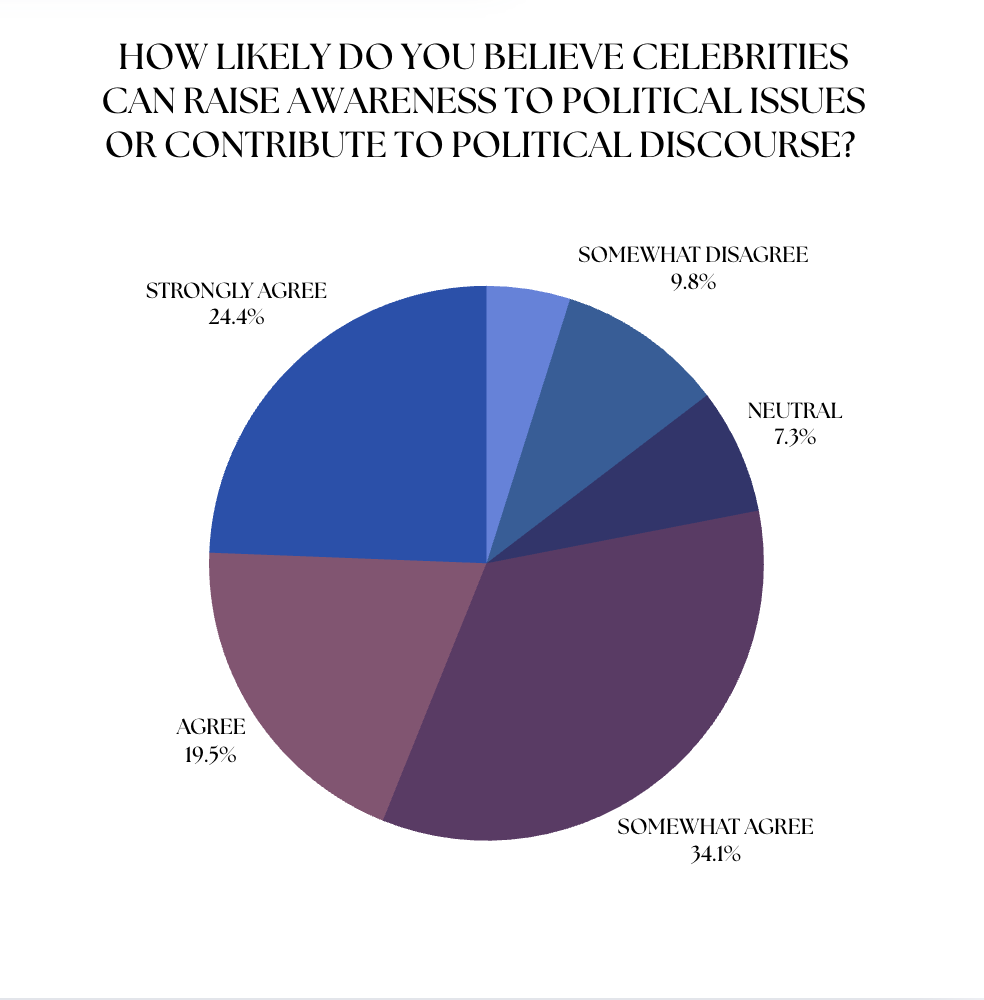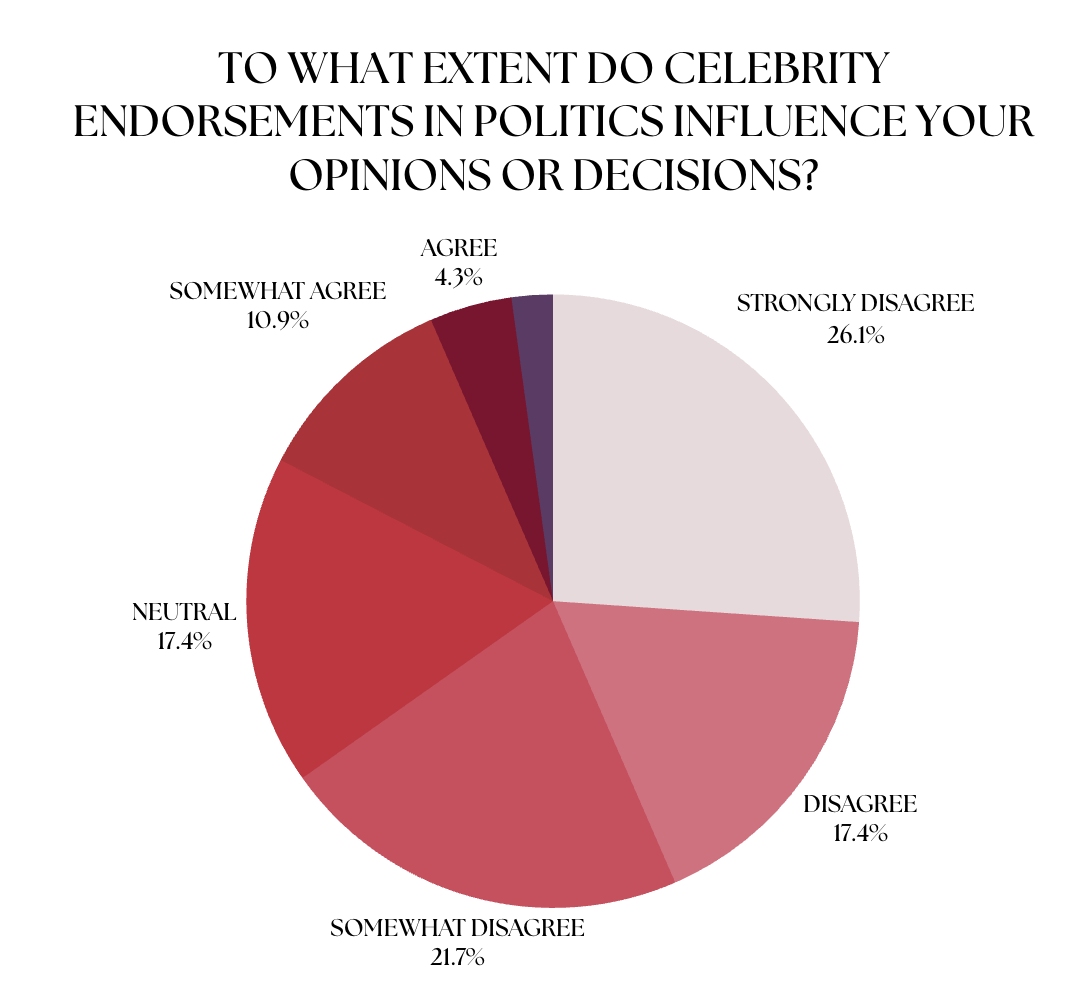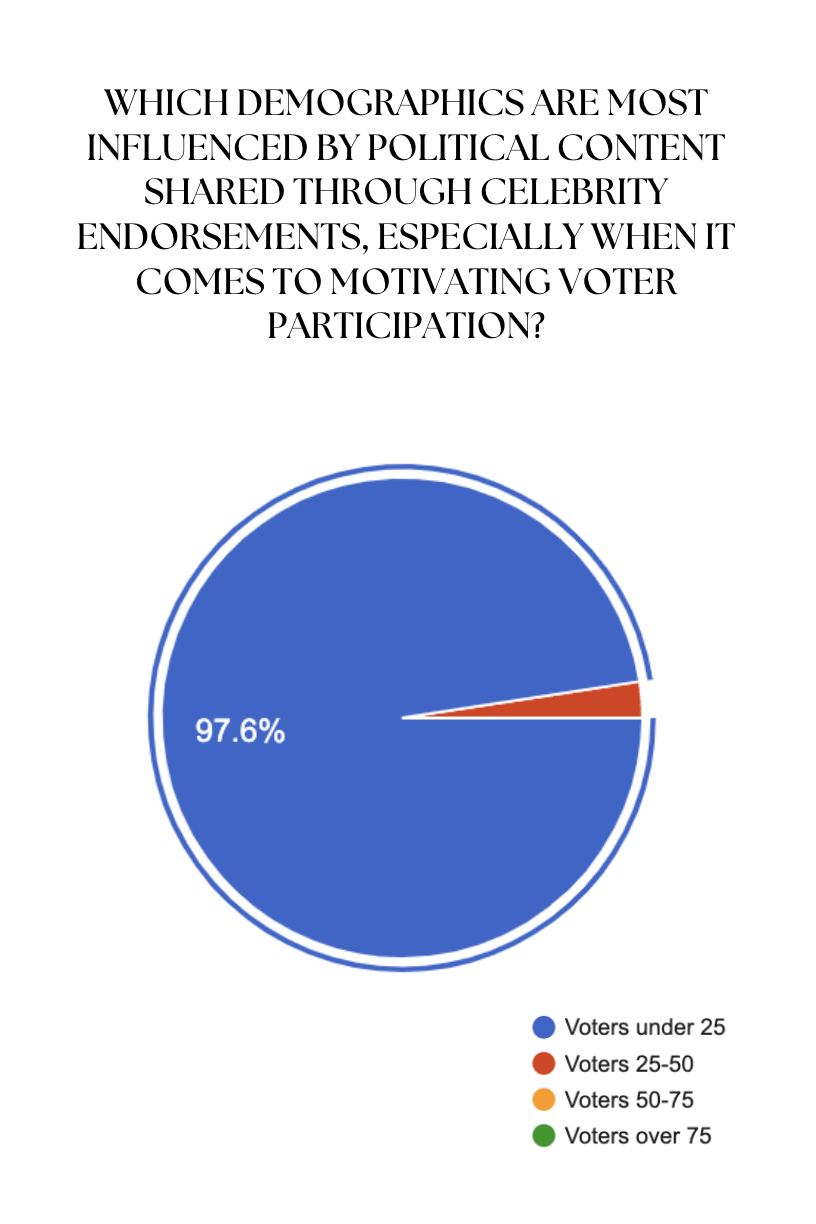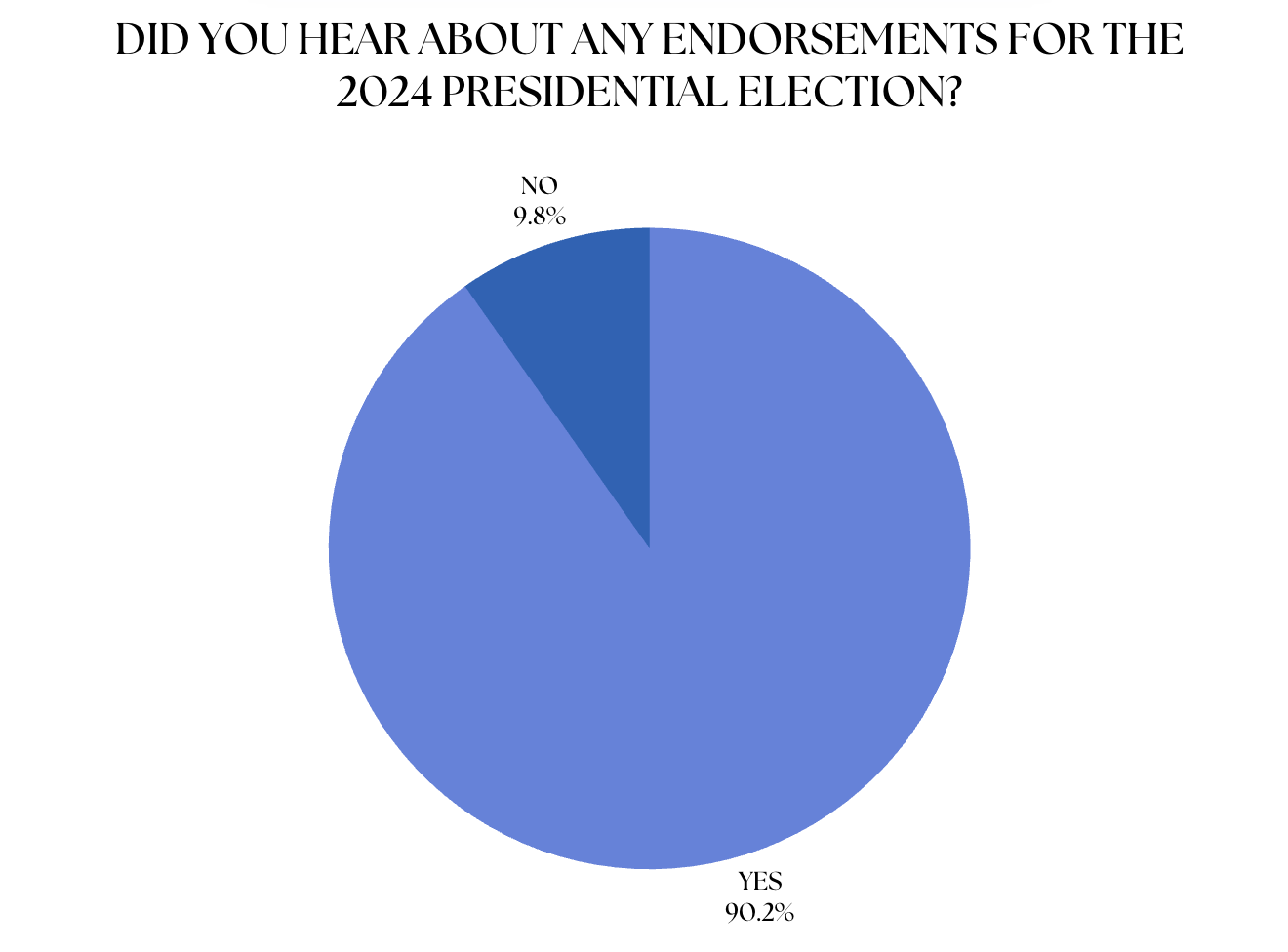CELEBRITIES INFLUENCE IN
AMERICAN ELECTIONS
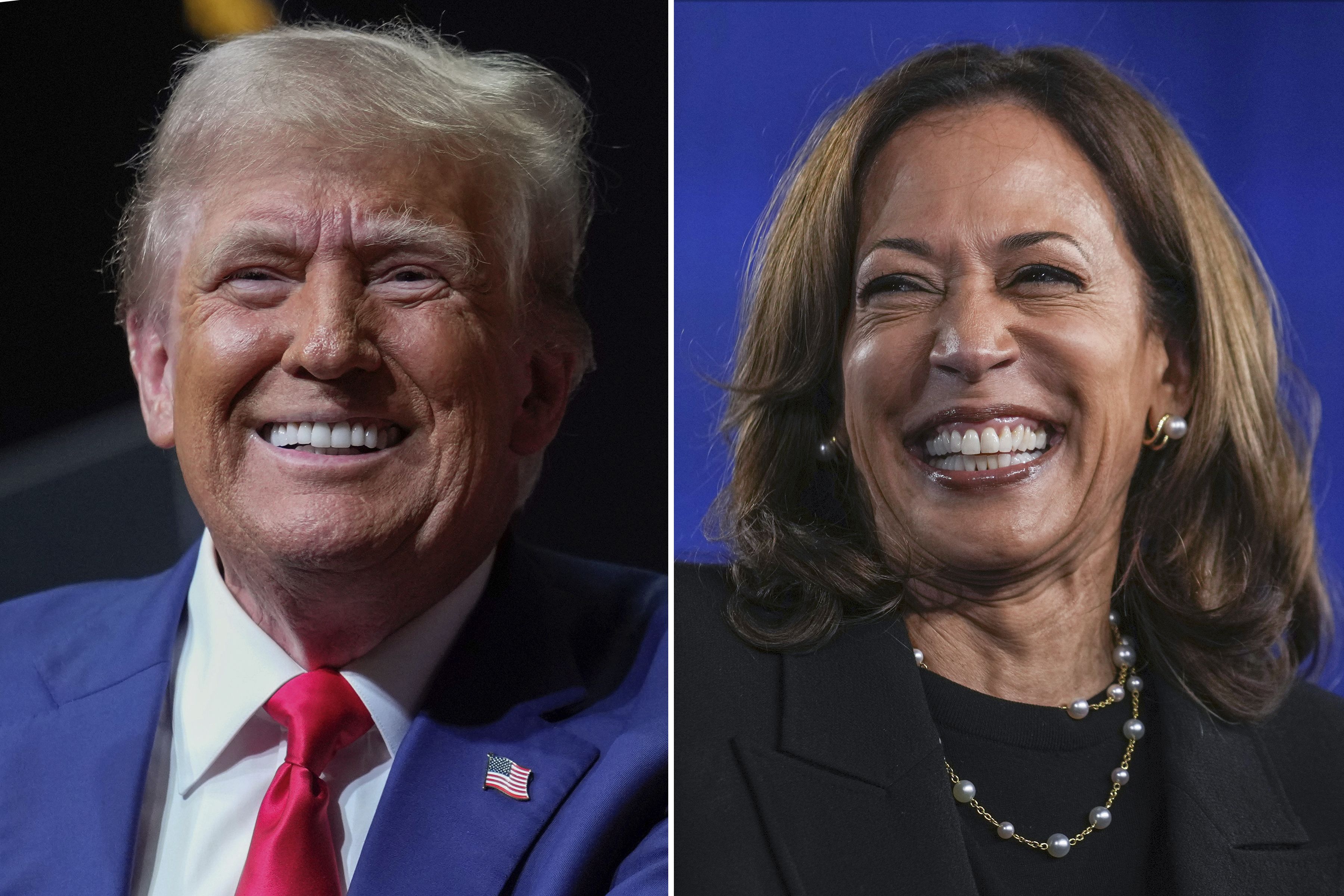
Celebrity endorsements in American elections have evolved into a powerful tool for influencing public opinion, especially among younger voters. With celebrities like Willie Nelson hosting events or figures like Beyoncé actively campaigning, their reach extends far beyond traditional political channels. Studies show that endorsements can sway youth engagement, with pop culture figures effectively mobilising younger demographics who may otherwise be disengaged. These celebrities' involvement taps into the ethos of younger voters, who increasingly engage with politics through digital and cultural mediums.
These endorsements are not limited to rallying for candidates; they often highlight critical issues such as climate change, voting rights, and social justice, framing them in ways that resonate with diverse audiences. While the impact varies, celebrities provide a unique bridge between political figures and the public, particularly influencing voting behaviour through social media and live events.
The History of Celebrity Endorsements
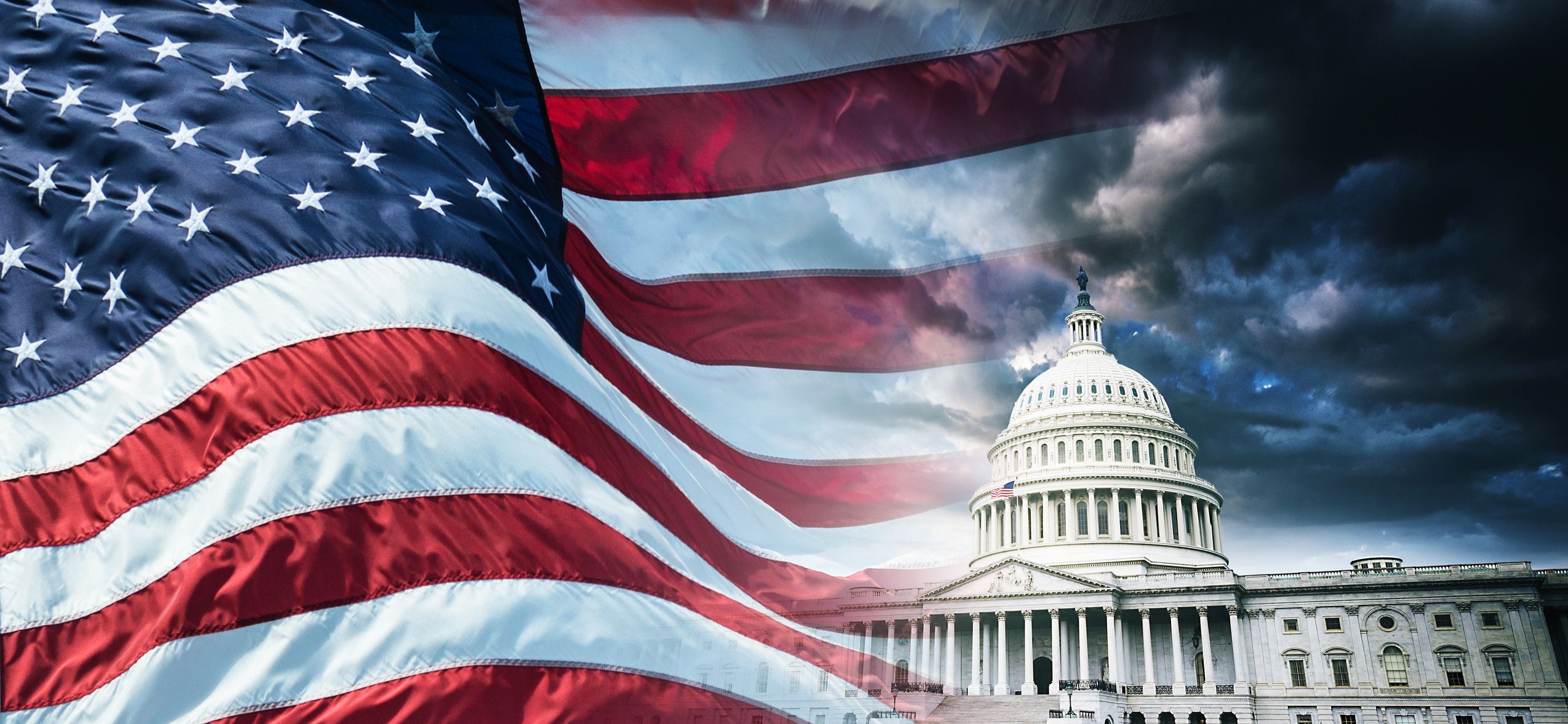
HISTORY
Celebrity endorsements in American elections have a long history. The first known celebrity endorsement in American politics occurred in 1920 when Broadway star Al Jolson publicly supported Warren G. Harding during his campaign for president. Jolson, a highly popular entertainer of the time, used his fame to rally support for Harding, marking an early instance of celebrities influencing political campaigns.
This practice grew over the decades as Hollywood and politics increasingly intersected, culminating in significant examples like Frank Sinatra's support for John F. Kennedy in 1960. Sinatra even organized donor dinners appeared in radio ads, and lent his private jet to Kennedy operatives. At concerts, he performed a reworked version of his hit "High Hopes," which served as the theme song of the Kennedy campaign.
Another pivotal example of this is Jackie Robinson. In the 1960 presidential race between John F. Kennedy and Richard Nixon, Robinson’s endorsement of Nixon surprised many. Known for breaking baseball’s color barrier, Robinson had remained politically neutral during his athletic career. However, his post-career endorsement was driven by Nixon’s successful outreach, as Robinson later reflected in his autobiography. This moment underscores the strategic significance of celebrity endorsements and how campaigns have long sought cultural icons to resonate with diverse audiences.
CTSY: AP Newsroom
CTSY: AP Newsroom
CTSY: AP Newsroom
CTSY: AP Newsroom
TCU Students Divided on Celebrity Influence in Politics
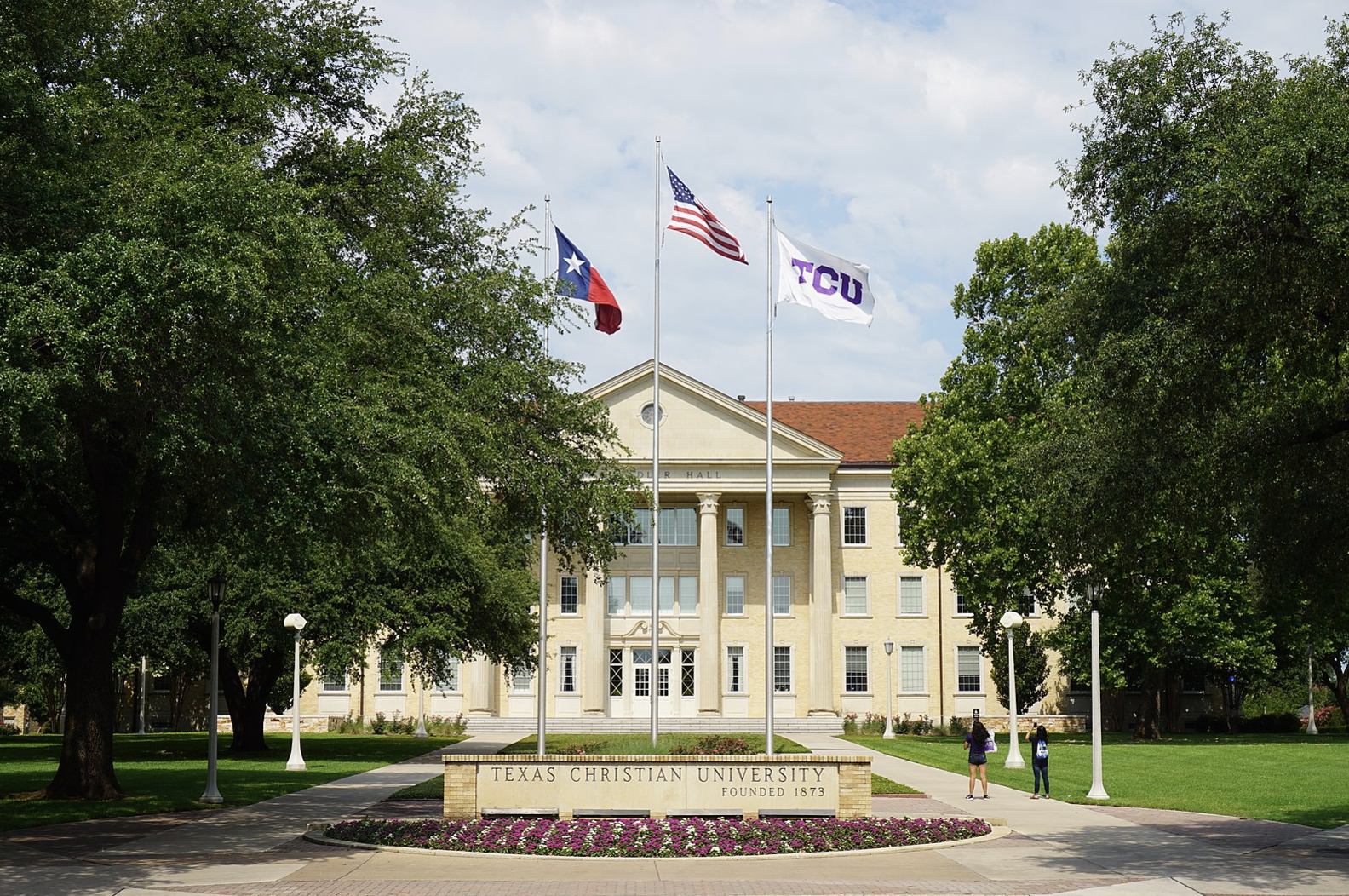
Student survey responses
Student survey responses
Student survey responses
Student survey responses
Student survey responses
Student survey responses
Personal Politics
When asked about their attention to celebrity politics, responses from TCU students were split. A significant 29.3% strongly disagreed with personally paying attention, while 19.5% agreed to some extent. Opinions diverged across the spectrum, reflecting a mix of disinterest and moderate engagement. This aligns with broader observations about the effectiveness of celebrity endorsements, particularly among younger voters, where responses often vary based on personal values and political awareness.
Then, when TCU students were asked if the celebrities they follow align politically with them, responses revealed diverse opinions. Notably, 20.7% strongly disagreed with the statement, 17.2% agreed, and 10.3% strongly agreed. A significant 24.1% somewhat disagreed, indicating a tendency for political misalignment with celebrities among some respondents.
This reflects a connection to the earlier findings, as the statistical alignment with the previous question's responses highlights why celebrities may have limited influence on shaping political opinions. The political misalignment seen here reinforces the idea that while celebrities can spark awareness, their effectiveness in guiding personal political decisions remains varied.
Similarly, these responses highlight that celebrity endorsements can be powerful tools in shaping public opinion, but only when they are seen as authentic and align with the audience's values. When a celebrity publicly supports a candidate or cause, their influence is most effective if it resonates with their personal brand and beliefs. For instance, an actor known for their environmental activism will have more credibility when endorsing a green candidate than someone with no established connection to the issue. Inauthentic endorsements or those that seem opportunistic often fall flat, as audiences can quickly detect when a celebrity's stance doesn’t align with their public persona. Additionally, celebrities who align their endorsements with their established brand and personal beliefs, naturally attract a like-minded audience. This consistency enhances their credibility and influence. However, if their endorsements conflict with the values or expectations of their audience, the impact may diminish, causing the message to resonate less or even alienate followers.
In an age where trust in traditional media is waning, celebrities are stepping into the spotlight as influential voices in public discourse. Dean Bunton, of TCU's Bob Schieffer College of Communication, addressed this stating, “LeBron James, Steph Curry, you name it—those famous athletes and entertainers—people feel like they know them and trust them in a way that is a little odd. They’re not journalists. They don’t have to check their accuracy and facts. And yet, in today’s world, a lot of people think they’re more authentic than journalists.”
This indicates the importance of celebrities being both authentic and informed about the causes they champion. With vast platforms and millions of followers, figures like James and Curry wield immense influence, shaping public opinion and driving engagement.
Student survey responses
Student survey responses
Students survey responses
Students survey responses
Student survey responses
Student survey responses
Student survey responses
Student survey responses
Effectiveness
Celebrity endorsements in politics are a topic of frequent debate, particularly concerning their influence on voter registration, participation, and decision-making. When TCU students were polled on whether such endorsements encourage more people to register and participate in voting, responses leaned slightly towards agreement. Interestingly, no respondents strongly disagreed, and only one outright disagreed, while most clustered around agreement. This suggests that many recognize the potential for celebrities to inspire voter engagement, even if the impact may not be universally acknowledged.
Regarding the overall effectiveness of celebrity endorsements in raising awareness about political issues, a similar trend emerged. A significant majority of students (78%) agreed that celebrities possess the ability to contribute meaningfully to political discourse and bring attention to important issues. This reflects a belief that public figures can leverage their platforms to inform and mobilize voters, particularly among younger audiences who may be more attuned to celebrity influence.
However, when asked whether celebrity endorsements directly influenced their own political opinions or decisions, students exhibited a strong sense of autonomy. The majority (65.2%) either strongly disagreed, disagreed, or somewhat disagreed with the idea that endorsements swayed their choices. This highlights a distinction between recognizing the general influence of celebrity involvement in politics and perceiving a personal impact.
Overall, the findings suggest that while TCU students acknowledge the broader societal role of celebrity endorsements in politics, they maintain a sense of individual independence in their own political decision-making.
Endorsements
Poll reveals a striking 97.6% of respondents believe that voters under 25 are the demographic most influenced by political content shared through celebrity endorsements, particularly in motivating voter participation. This age group is seen as significantly more impacted by celebrity messaging compared to older demographics, including voters aged 25-50, 50-75, and those over 75.
The Shift in American Celebrity Culture
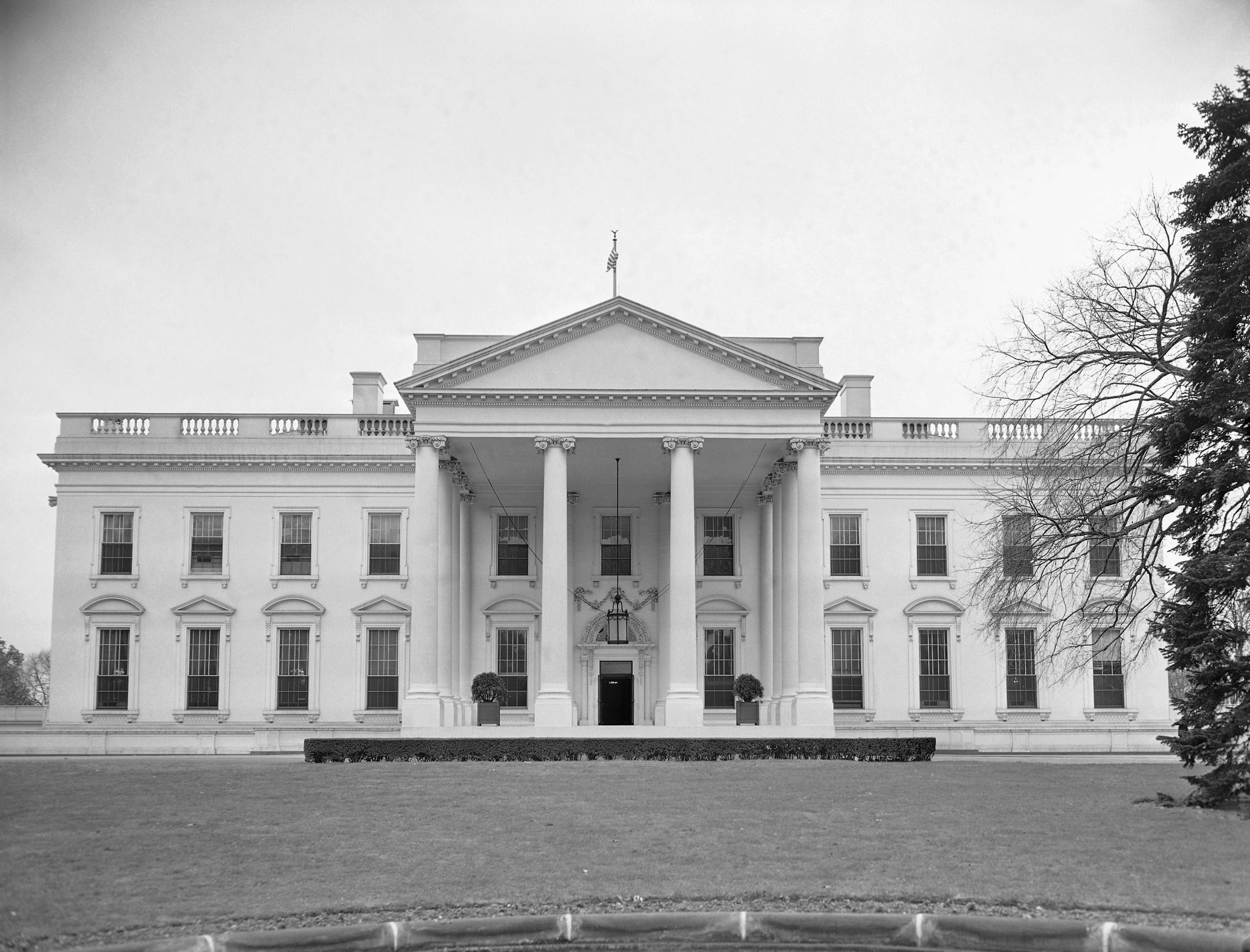
Political Action From Taylor Swift to Elon Musk
Celebrity endorsements appear to dominate this election cycle, with 90.2% of respondents reporting exposure to them. High-profile figures such as Taylor Swift, Beyoncé, Megan Thee Stallion, and Billie Eilish were noted for endorsing Kamala Harris, while Elon Musk, Joe Rogan, and Bryce Hall voiced support for Donald Trump. This reflects how celebrity endorsements have saturated the cultural zeitgeist, shaping public perceptions of candidates, particularly among younger voters.
The Rise of Celebrity Influence in Politics
The best example of this cultural shift is Taylor Swift. On Super Tuesday morning, the singer posted a short message on Instagram encouraging her 272 million followers to register to vote. Afterward, the website she directed her fans to — the nonpartisan nonprofit Vote.org — recorded more than 35,000 registrations, according to the organization. Swift had successfully mobilized her fans to register to vote, according to a Harvard study.
Also according the the Harvard study, one in ten Americans say a celebrity has caused them to reconsider a political position. This points to celebrities strengthening our culture of democracy. This dynamic was evident at TCU, where students showed mixed but notable recognition of celebrity influence on voting and political discourse, suggesting a growing cultural trend.
This shift in American Culture is best described by Dean Bunton, of Bob Schieffer College of Communication, who notes that celebrities today have more direct platforms, such as social media, to reach their audiences, unlike past stars who were under studio contracts and were limited on what they could say. “Now there’s the phenomenon of parasocial interaction, where fans feel a personal connection to celebrities like Taylor Swift, like [she] is speaking exclusively to them—like she’s their friend or acquaintance, [and] her team is genius at making it feel highly personal, which draws people in and amplifies her impact,” explained Bunton.
In conclusion, the intersection of celebrities and politics is an evolving dynamic, one that is likely to continue shaping American culture. From figures like Ronald Reagan, who transitioned from Hollywood to the presidency, to Arnold Schwarzenegger’s successful political career as California’s governor, the line between entertainment and politics has steadily blurred. Even Donald Trump, once a reality TV star, leveraged his celebrity status into a political ascent. In a world where celebrity endorsements continue to sway public opinion, we may soon find ourselves in a reality where entertainment and politics are indistinguishable
“Right now, young voters have relatively low levels of trust in a lot of leaders and institutions, including traditional news media -- but celebrities are often a rare exception.” -Ashley Spillane
All images via AP Newsroom or TCU 360
